CRM Metrics Guide: The Most Important Metrics to Measure for Success (2023)
Customer relationship metrics can help you identify how satisfied your customers are with your business and how likely you are to close them.
Measuring CRM metrics is essential if you are looking to:
-
Improve customer satisfaction
-
Provide a better experience
-
Maximize sales
But there are so many of these metrics that you might not be sure which one to measure and optimize. We're going to prevent that today!
In this post, you'll discover the most important CRM metrics to measure and optimize for success.
How to Effectively Track CRM Metrics
You must be aware of how to measure CRM metrics properly. If you don't, it doesn't matter which metrics you choose; it won't make any impact.
Here are a few tips for effectively measuring your CRM metrics.
Consider Your Objectives
Be clear on what is the most important goal for your business and customers. Are you looking to:
-
Get more traffic
-
Close more potential leads
-
Retain more existing customers
All of these are important, but there are different metrics for each of them to measure. Make sure you pick the ones that are aligned with your objectives and stick to them.
Create SMART Goals
You need to set a goal with each of your metrics and strive to achieve it. The best way to go about this is to use the SMART formula for goal setting.
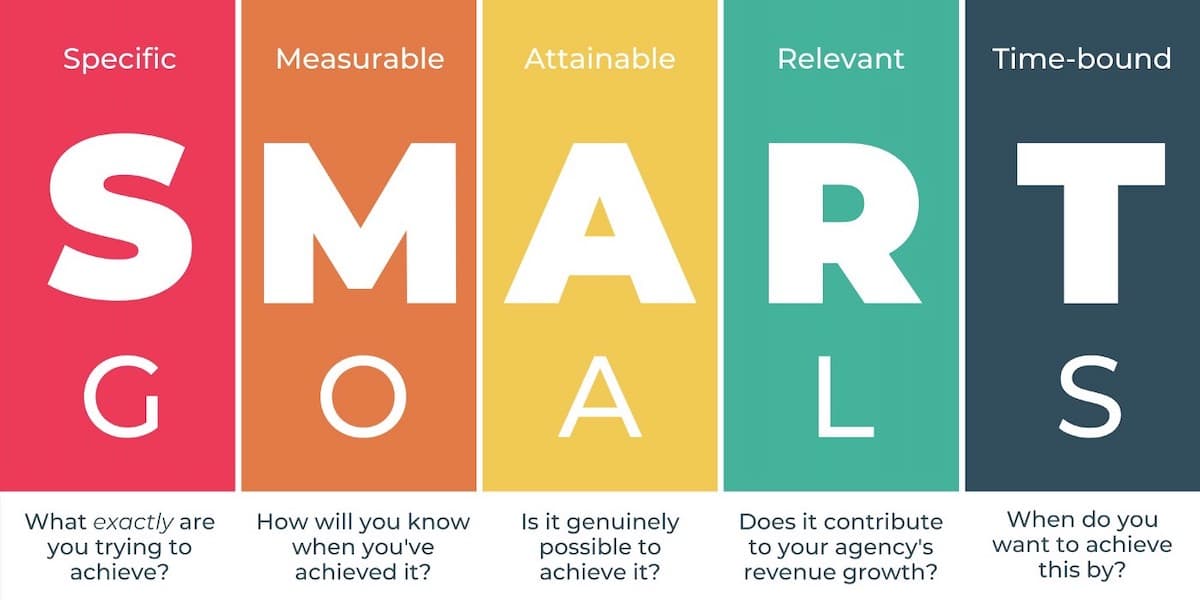
Source:Breeze
It will help you st your goals effectively and pave the way for hitting them.
Measure Your Metrics
The most common issue with CRM metrics is not knowing how to measure them. Fortunately, Konnektive CRM can help you with that.
We've created an in-depth dashboard with all the important metrics you'll need measured automatically.
All you need to do is to find the metric on the dashboard and see how it develops over time.
6 Most Important CRM Metrics to Measure
You're about to discover the most critical CRM metrics to measure for your business.
Measuring and optimizing these metrics brought us massive results like an increase in conversions, higher customer satisfaction, and an exceptional ROI.
#1: Conversion Rate
Conversion rate is the percentage of people that complete a desired action. This action can be filling in a form, signing up for an email list, or a purchase. Conversion rate is one of the closest metrics to your revenue.
It is also powerful because it tells you the quality of traffic from marketing channels. That way, you can identify what channels work best and put more effort into them.
(which can improve your customer acquisition cost and maximize revenue.)
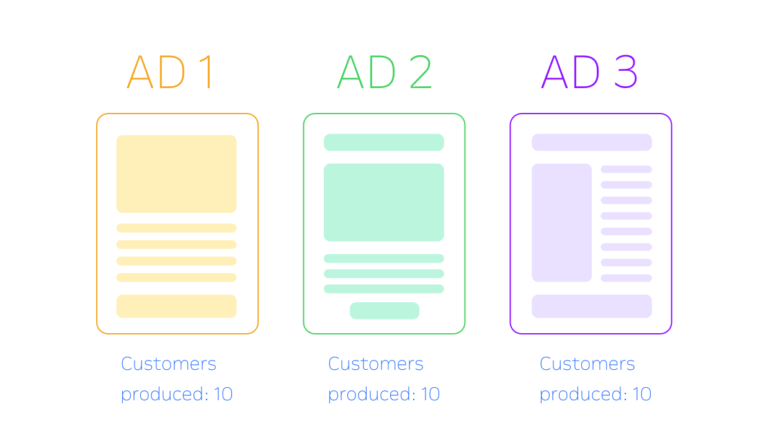
Source:Intercom
Here is the most common formula to calculate it.

Source:Wall Street Prep
Or you can just look it up in the Konnektive CRM dashboard without any hassle.
#2: Customer Lifetime Value
CLV will help you understand how much revenue you can expect from a customer. Knowing this can help you identify:
-
How much money you can spend on acquisition
-
How great is your relationship with customers
There are a lot of formulas you can use to calculate customer lifetime value. The easiest way to do so is to use the formula below.

For instance, let's say you're a SaaS company with multiple price plans, but the average customer spends just $17 per month.
Customers typically subscribe for three and a half years and use automatic monthly payments.
The formula would then look like this – with a CLV of $714.

If you're not familiar with these metrics, it might be complicated (and confusing.) It's much easier to just head to Konnektive CRM and look it up there.
#3: Customer Acquisition Cost
Customer acquisition cost tells you how much it costs to acquire a customer. It's valuable for measuring the effectiveness of your customer acquisition strategy.
(it can also let you know if you're not spending too much on the acquisition.)
If you compare CAC across multiple channels, you can quickly understand what:
-
Channels are the most effective
-
Resonates with your customers
-
To avoid (what doesn't stick with customers)
It's also a meaningful metric for potential investors, helping them gauge the scalability of your business.
Here is the easiest formula to calculate your customer acquisition cost.
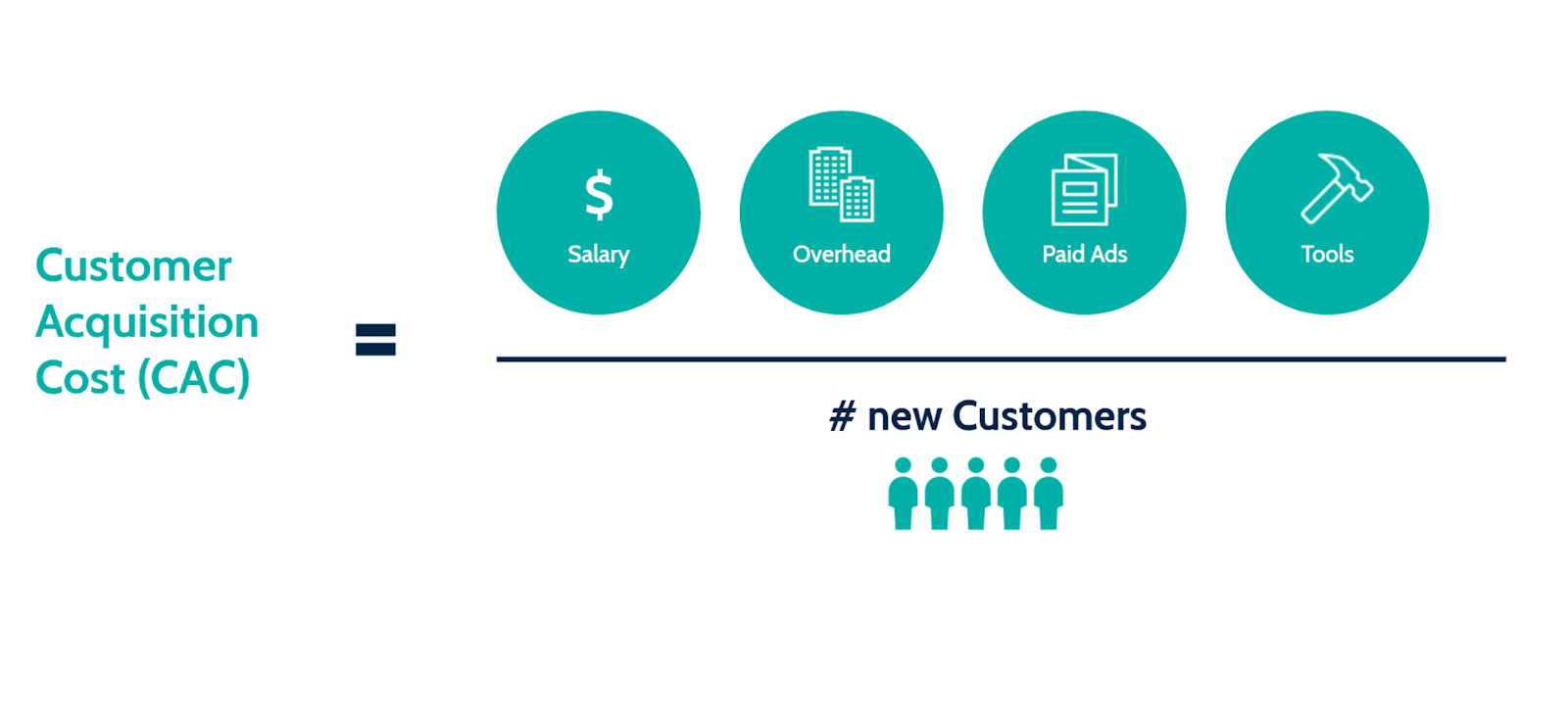
Source:KPI Max
For instance, if you spent $100,000 on sales and marketing this quarter and added 1000 customers, your CAC is $100.
Reducing customer acquisition cost is essential to stay profitable and scale your business faster.
#4: Churn Rate
Your customer churn rate defines how many customers stop doing business with you during a specified period of time. The lower the churn rate, the better.
Knowing your churn rate can help you identify whether:
-
Your retention strategies are working
-
Your products or services don't have significant flaws
And so much more…
While this CRM metric won't tell you why customers are leaving, it can help you identify problems. You can see a formula to calculate the churn rate below.
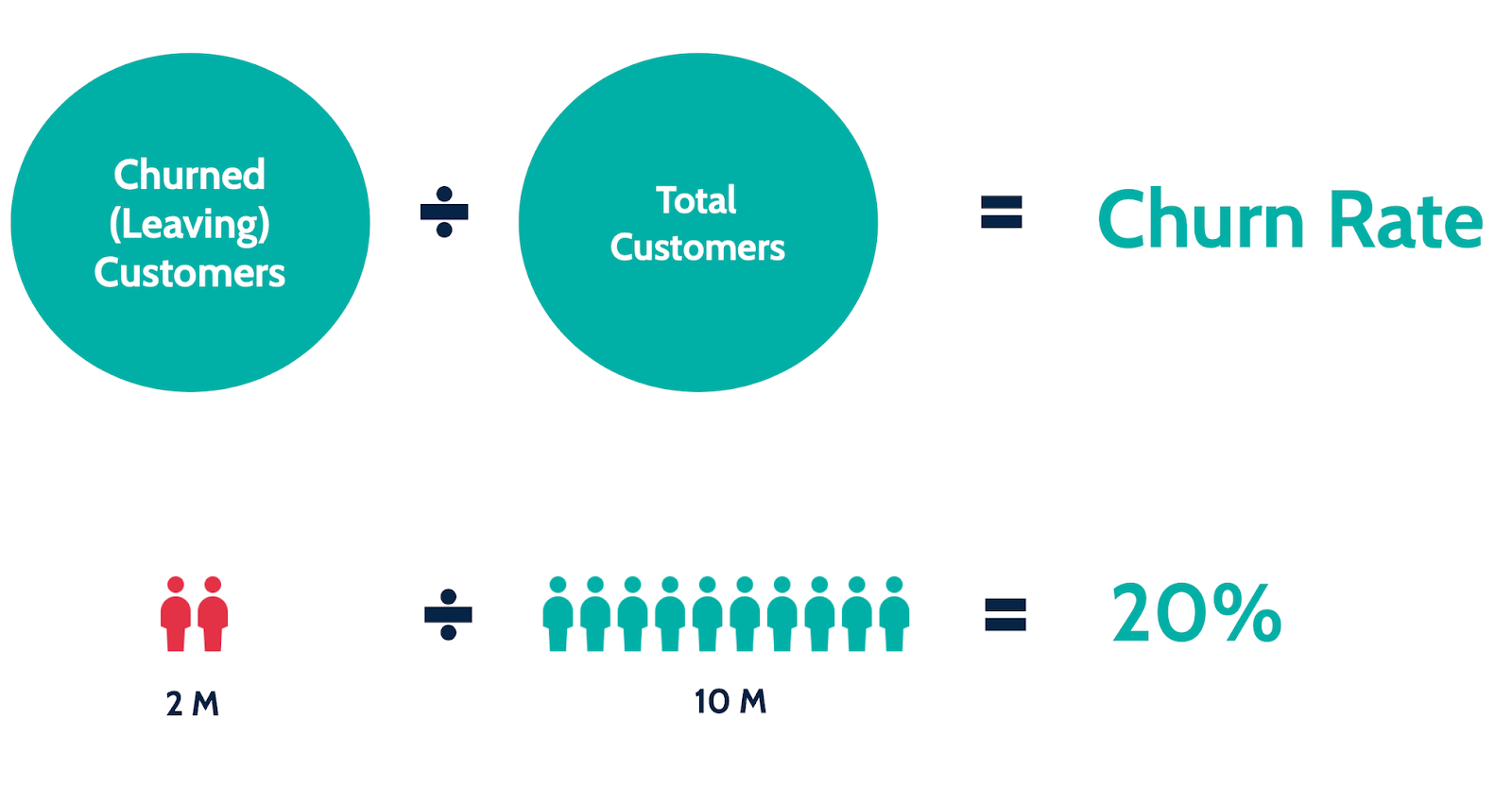
Source:KPI Max
For instance, if you have a total of 10M customers and 2M of them churned, your churn rate is 20%.
It's one of the easiest CRM metrics to track and one that should always be in your line of sight. After all, it's much more cost-effective to keep current customers than to find new ones.
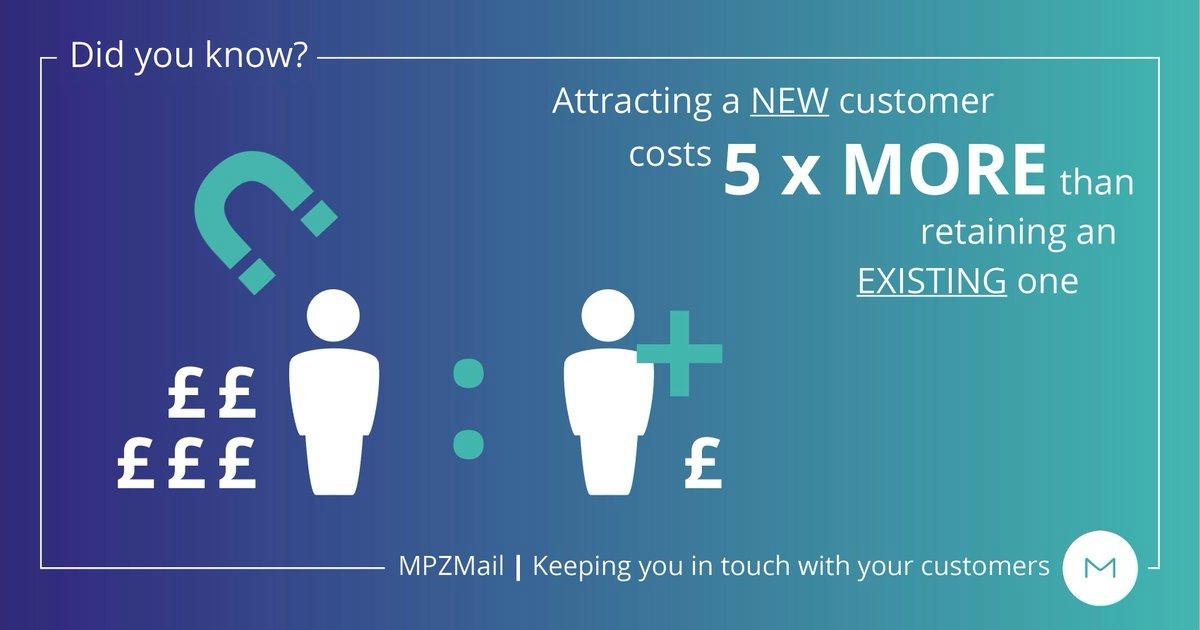
Source:MPZMail
Keep that in mind.
#5: Net Promoter Score
Net promoter score can help you measure customer satisfaction.
If you can acquire customers' data when they make a purchase from you, you can contact them and ask how likely they are to recommend your product or service to others on a scale of 1-5.
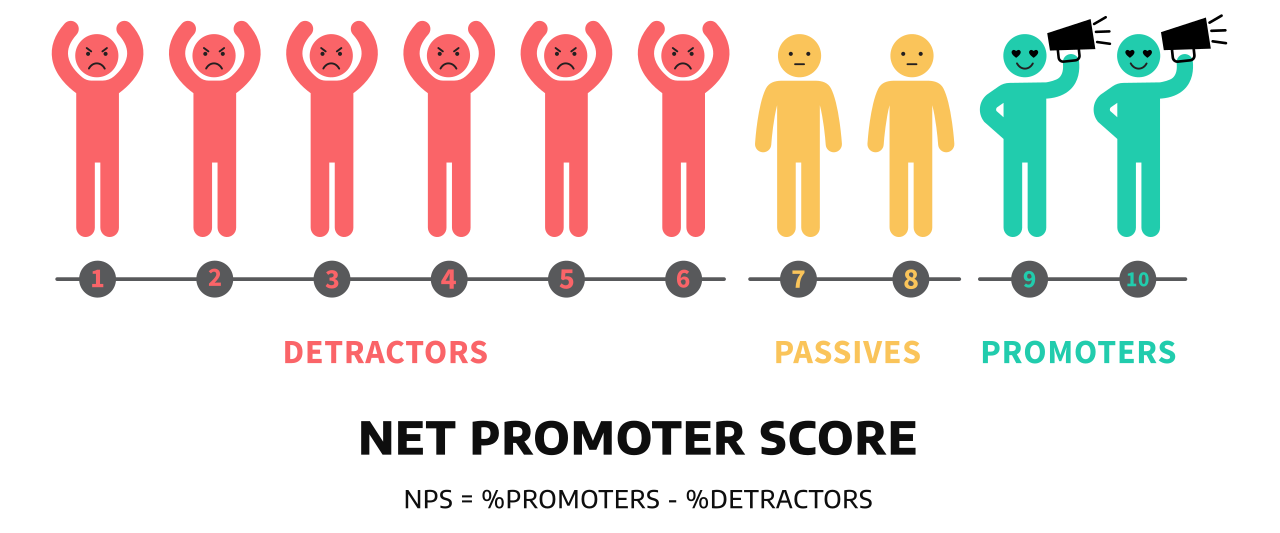
Source:Churn360
The higher the number, the more satisfied they are with the purchase.
-
Not likely at all
-
Unlikely
-
Likely
-
Very Likely
-
Extremely Likely
Customers that respond with 4 or 5 are your "promoters." Customers that say 3 are probably indifferent, and customers that say 1 or 2 might have had a negative experience.
(you have to especially focus on the 1s and 2s.)
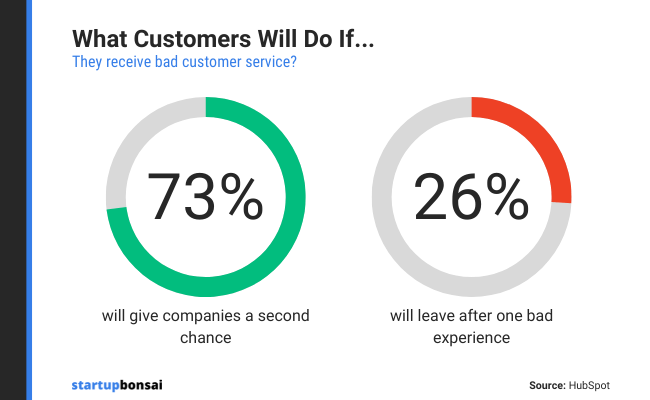
Source:Startup Bonsai
Your NPS affects your reputation and how you're perceived on the market – making it very powerful.
The best way to improve it is to analyze trends for each of these scores and reach out to your 1s and 2s to see how you can improve their experience or the experiences of future customers.
It's the best way to grow and improve your business.
#6: Average Time to Resolution
Average time to resolution is the time it takes your service representatives to respond to and resolve customers' tickets.
It's an extremely important CRM metric since it can help you:
-
Improve customer satisfaction
-
Provide better experience
Customers hate to wait, and just a slight delay in your customer service might have a fatal impact on your sales and churn rate.
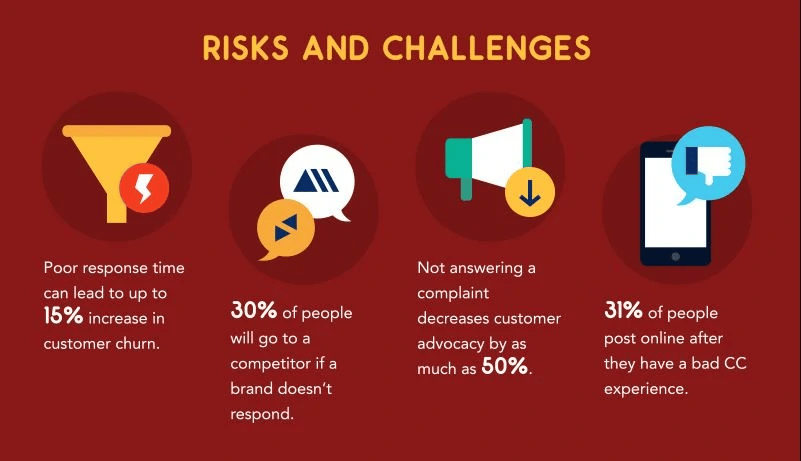
Source:Cooler Insights
Your customers expect you to respond to them quickly – making this metric a must-measure. There is no formula for calculating it. You will need to use an external tool.
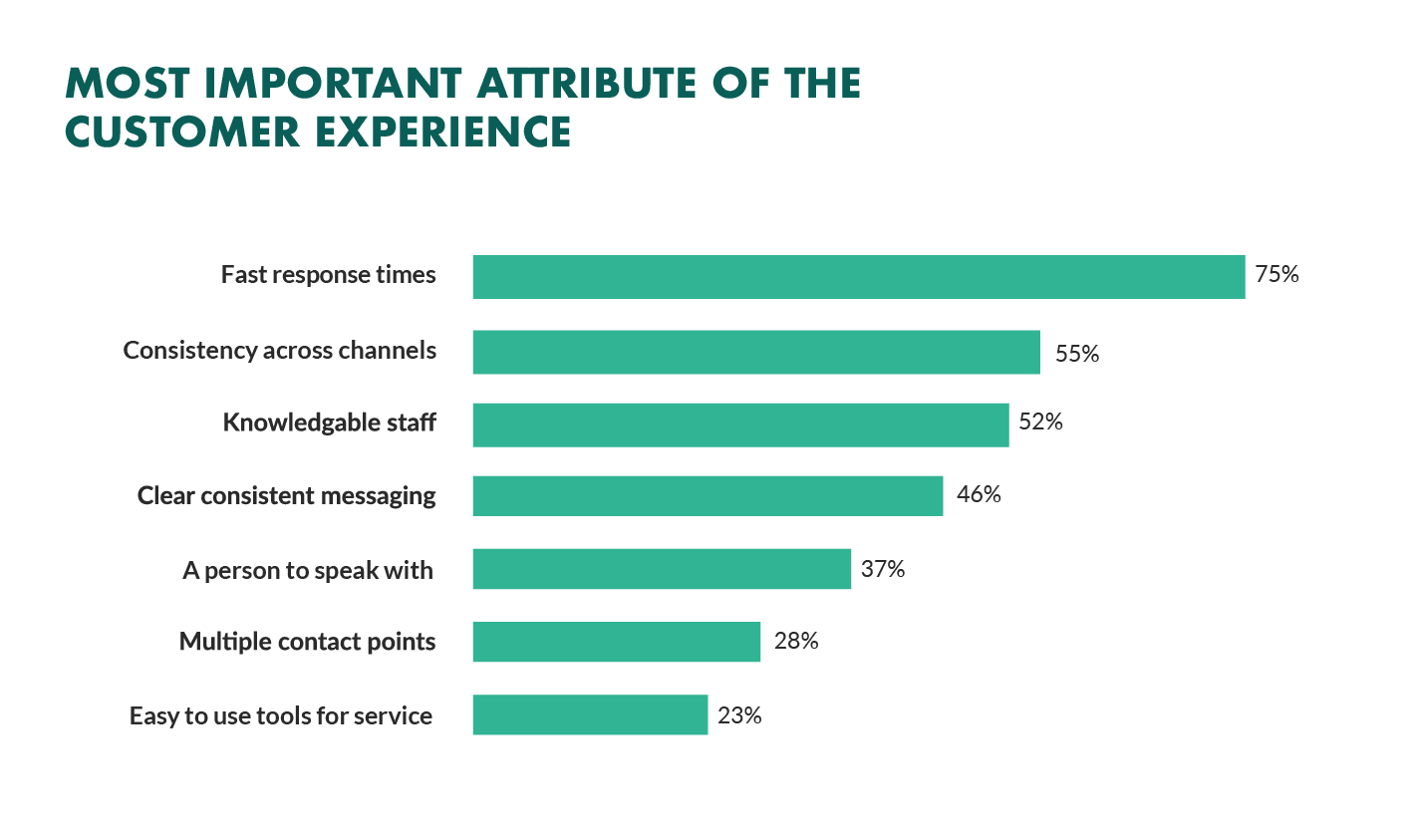
Source:SuperOffice
Also, you can go a step further and look at an average resolution time per service rep.
If one of your service reps takes much longer to resolve tickets, this is an opportunity to provide them with the right training and tools to improve their performance.
You must ensure each of your service reps resolves customers' issues as quickly as possible.
Conclusion
Measuring CRM metrics is critical for getting ahead and optimizing every aspect of your business. You've learned about the most important metrics to measure. The next step is to start measuring and optimizing each and every one of them.
Not sure where to start?
Konnektive CRM can help you automatically measure these metrics and provide you with a toolkit for optimizing them to drive massive results.
Book a demo with us today, optimize your CRM metrics, and get the revenue you deserve right now.





